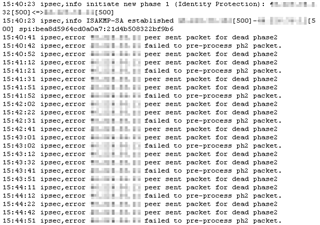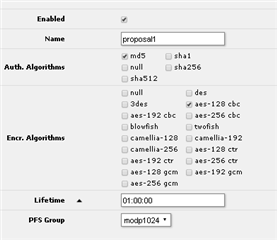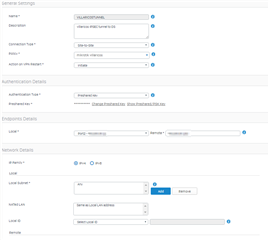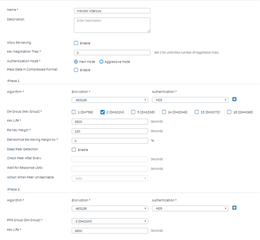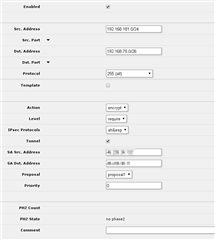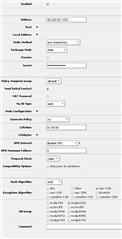Hi All,
Hope you can direct me into solving this issue, I've tried hundreds of configurations on both ends with no luck... it won't go past Pase2 SA rekeying.
I'm trying to connect our branch office (Mikrotik hEX) to our main site (XG105) through IPSEC tunnel. Both devices have a public IP assigned directly to their WAN interface (which belong to the same provider thus under the very same subnet).
I fisrtly used a TP-LINK TL-R600 router at our branch, which I could flawlessly connect to our XG using the DefaultHeadOffice IPSEC profile. This indicates that the connection is possible, just that something is escaping from my knowledge with mikrotik/xg. Unfortunately that TL-R600 router does not allow me to route traffic through the VPN tunnel, thus I could only reach one of our subnets (directly connected one through the tunnel) and not any of the other subnets behind our L3 Switch at main site.
I've tried using the DefaultHeadOffice profile with the mikrotik (configuring the mikrotik accordingly) but that would not even start negotiations. Then I created and applied an IPSEC profile, screencap attached.
I'm also attaching all configurations on both ends and error logs.
Many thanks!
This thread was automatically locked due to age.



